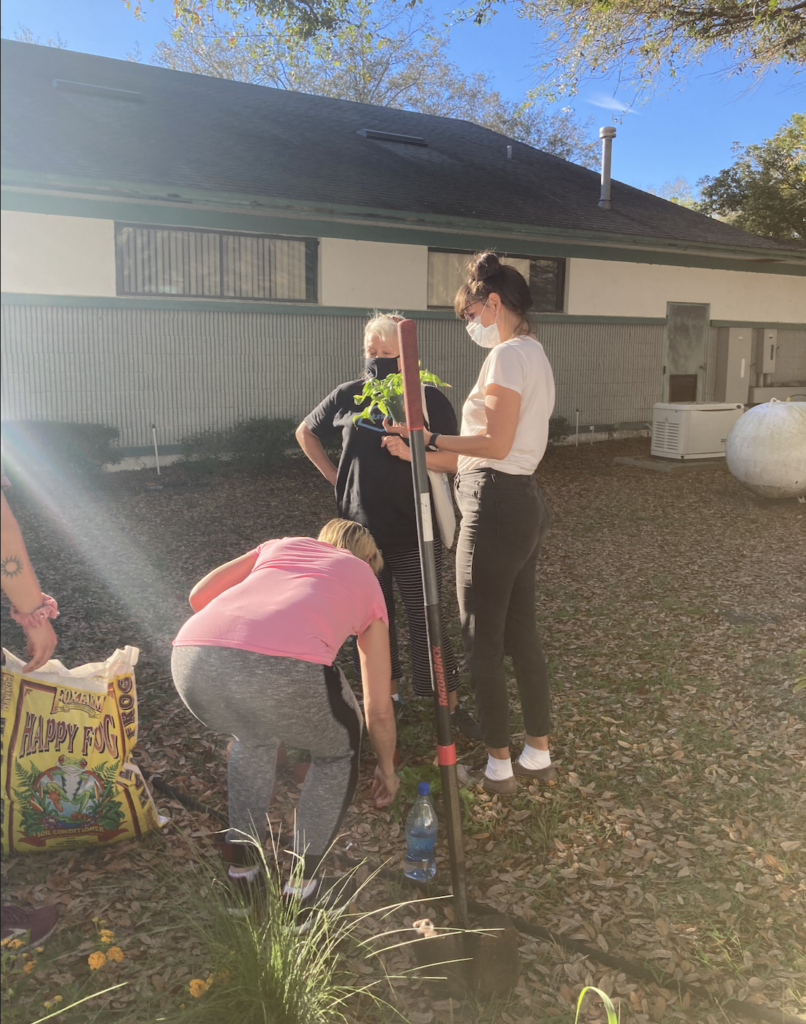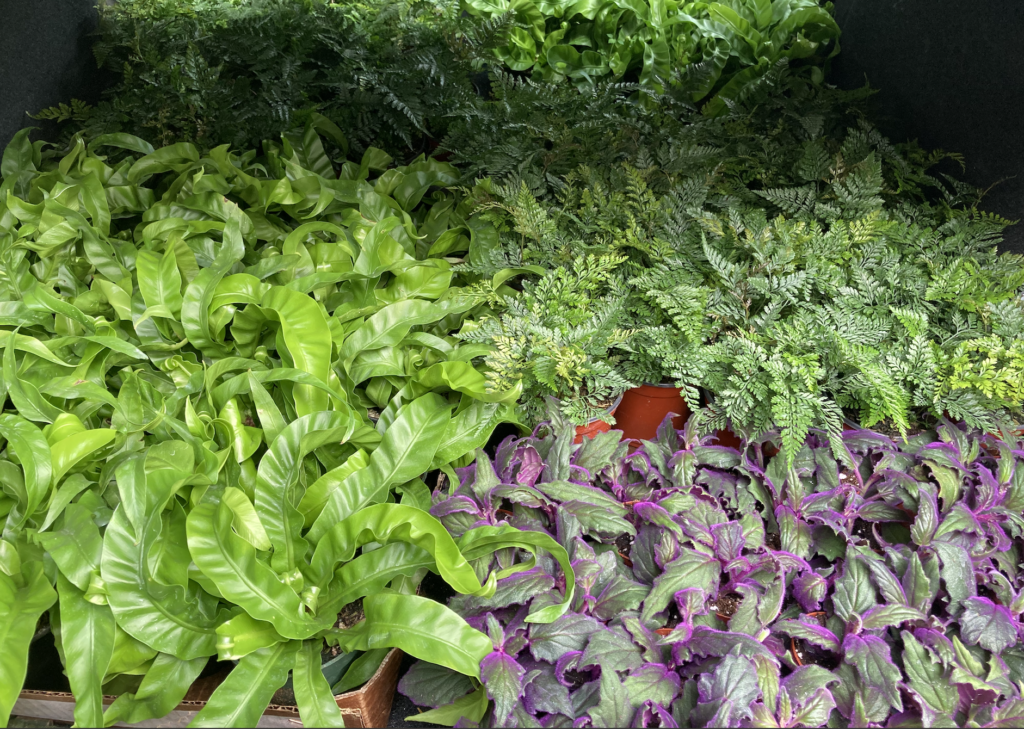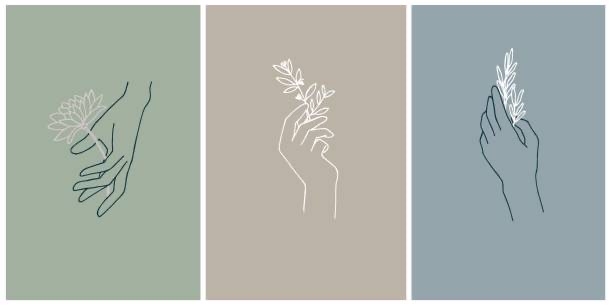Individualized, group, and virtual therapeutic horticulture are available within the following clinical treatment settings:
- Inpatient/Residential
- Outpatient
- Partial Hospitalization
- Reintegration

Studies of horticultural therapy for those receiving addiction and behavioral health treatment have proven that:
HT is most successful when coupled with clinical treatment.
Sessions are based on a therapeutic and wellness model of horticultural therapy. The purpose of this model is to provide clients with the time and space to move from their current self into their ideal self through reaching their self designed goals and objectives through active horticultural therapy program participation.
With therapeutic horticulture previously diagnosed issues clients face can be addressed in a space that creates a judgement free place to work on psychological concerns.

Offering horticultural therapy as a treatment modality within a rehabilitative settings has the unique ability to:
- Support recovering people in discovering the rejuvenating effects of people-plant connections.
- Provide a full mind-body experience that aids in the process of mental health recovery.
- Be used as a tool to distract the mind from negative and self-defeating thoughts.
- Provide coping strategies to better manage illness and stressors post discharge.
Ready to learn more and see which types of programs can benefit your rehabilitative setting? please contact Joanna today for a 15 minute consultation.
How will HT help our clients?
Goals that could be addressed through horticultural therapy are:
- Trauma coping pathway: gardening skills for coping with trauma
- Recognizing the plant-based environment as a “safe place”
- Reduction of stress, anxiety, and negative feelings
- Reduction of self-injury behavior
- Reduction of cortisol level (related to stress)
- Increased dopamine production (improves judgement and controls impulsivity)
- Improve memory
- Create new habits to break the violent cycle
- Improve self-esteem, self-confidence, self-awareness, self-care, and self-regulation
- Learn to be in the present moment
- Recover a sense of control/decision making
- Alleviate depression
- Relaxation techniques
- Develop trust bonds – reduce isolation, improve communication skills (verbal & nonverbal)
- Belong to a support group
- Reduce violence
- Encourage creativity
- Perform a pleasurable activity
- Acquire vocational skills (employment)

HT participants are not defined by disease, diagnosis or disability. In order to maximize functioning focus is on
- The interrelatedness of the participant.
- The task.
- The recognition of goals and needs of the whole person.
Depending on the unique and specific recovery needs of each patient there are many forms of horticultural therapy settings including restorative gardens, sensory gardens, rehabilitation gardens, enabling gardens, and healing gardens for indoor and out.
Documented studies of Horticultural Therapy and time spent in a garden setting have reported benefits such as :
- Increase feelings of self esteem and self worth
- Regain life balance
- Building self efficacy
- Identify feelings and emotions
- Increase Physical strength
- Attunement with the natural rhythms and cycles of nature
- Increase in self awareness
- Developing personal interests
Horticultural therapy compliments the skills learned in verbal therapies, specifically cognitive behavioral therapy and dialectical behavioral therapy, and helps clients find new ways to express their thoughts and emotions, learn new skills build confidence and interact with peers (Haller, et al.2019.).
